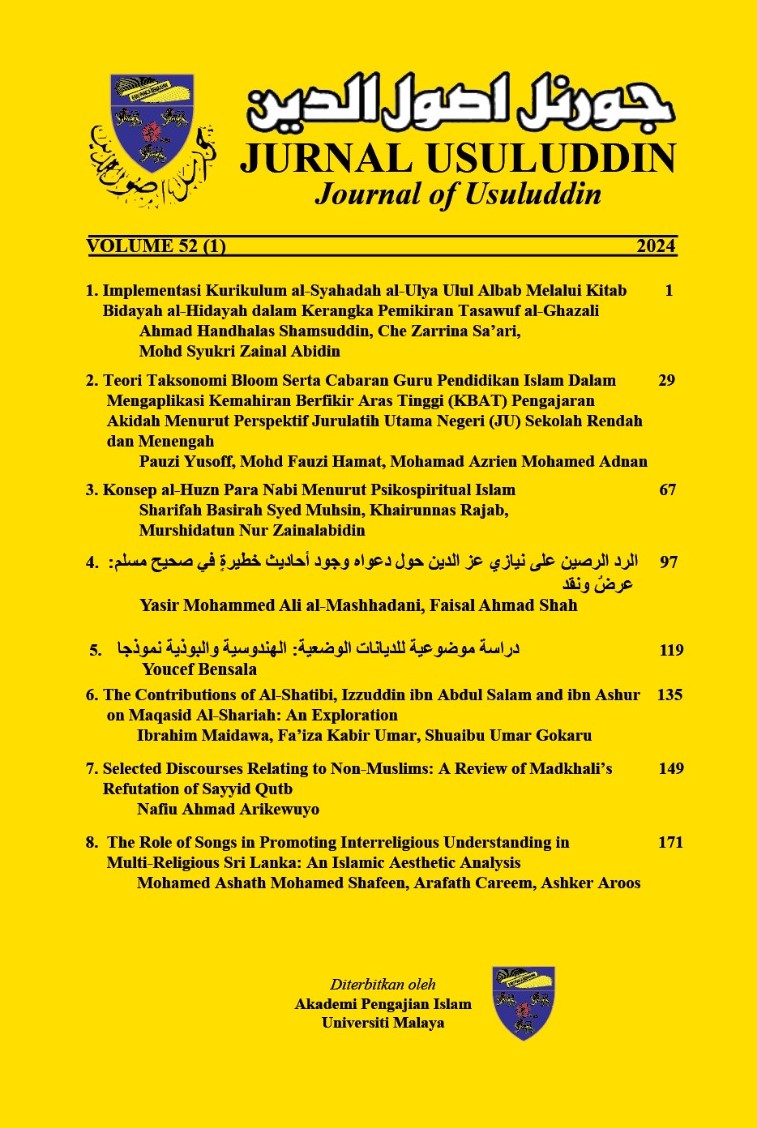الرد الرصين على نيازي عز الدين حول دعواه وجود أحاديث خطيرةٍ في صحيح مسلم: عرضٌ ونقدٌ
A Sound Refutation of Niyazi’s Claim about Sahih Muslim Containing False Hadiths: Explanation and Critique
DOI:
https://doi.org/10.22452/usuluddin.vol52no1.4Abstract
There have been many critics of the Prophetic legacy (sunnah) by deliberately targeting Sahih al-Bukhari and Sahih Muslim [May Allah shower His mercy upon them]. The methods used by those critics have been manifold over the course of time. This article aims at exposing one of the modernists who claims to possess the knowledge of the sharia-based rulings and what such rulings imply as meanings and concepts enacted by Allah for us through His book and through the sunnah of the Prophet [PBUH]. Hence, Niyazi desultorily makes his own judgment and discredits the authenticity of the hadiths contained in Sahih al-Bukhari and Sahih Muslim by claiming that they either contradict with the Quran or oppose one another by referring in all these to reason and logic. Niyazi Izz al-Din has authored several books, all of which have been dedicated to discrediting and criticising the sunnah with Din al-Sultan exclusively devoted to discrediting Sahih al-Bukhari and Sahih Muslim. He claims that there are three false or fabricated hadiths in Sahih Muslim that are detrimental to Islam and that the sultan benefited from rulings contained in those hadiths for his own interest. As a result, this article focuses on the three hadiths that have been discredited by Niyazi on three topics by way of explaining, describing and critiquing the claims made by Niyazi. The article refutes all the claims made by Niyazi by examining the following questions: are the three hadiths false as claimed by Niyazi? Were the three hadiths fabricated and inserted in Sahih al-Bukhari and Sahih Muslim by the Sultan’s guards? Are the claims and criticisms laid by Niyazi against hadiths in compliance with the criteria and conditions set by the scholars in accepting and rejecting narrations. The article concludes that there are no false or fabricated hadiths in Sahih al-Bukhari and Sahih Muslim, that the hadiths discredited in Sahih Muslim are all authentic, that Niyazi does not commit himself, in his criticism, to the prerequisites of scientific research. His criticism lacks objectivity and is rather zealous and triumphant in nature in defiance of modernist and rationalist ideas. The article also warns against the misconceptions disseminated by the modernists and the treacherous approaches they use to discredit the hadiths contained in Sahih al-Bukhari and Sahih Muslim.











